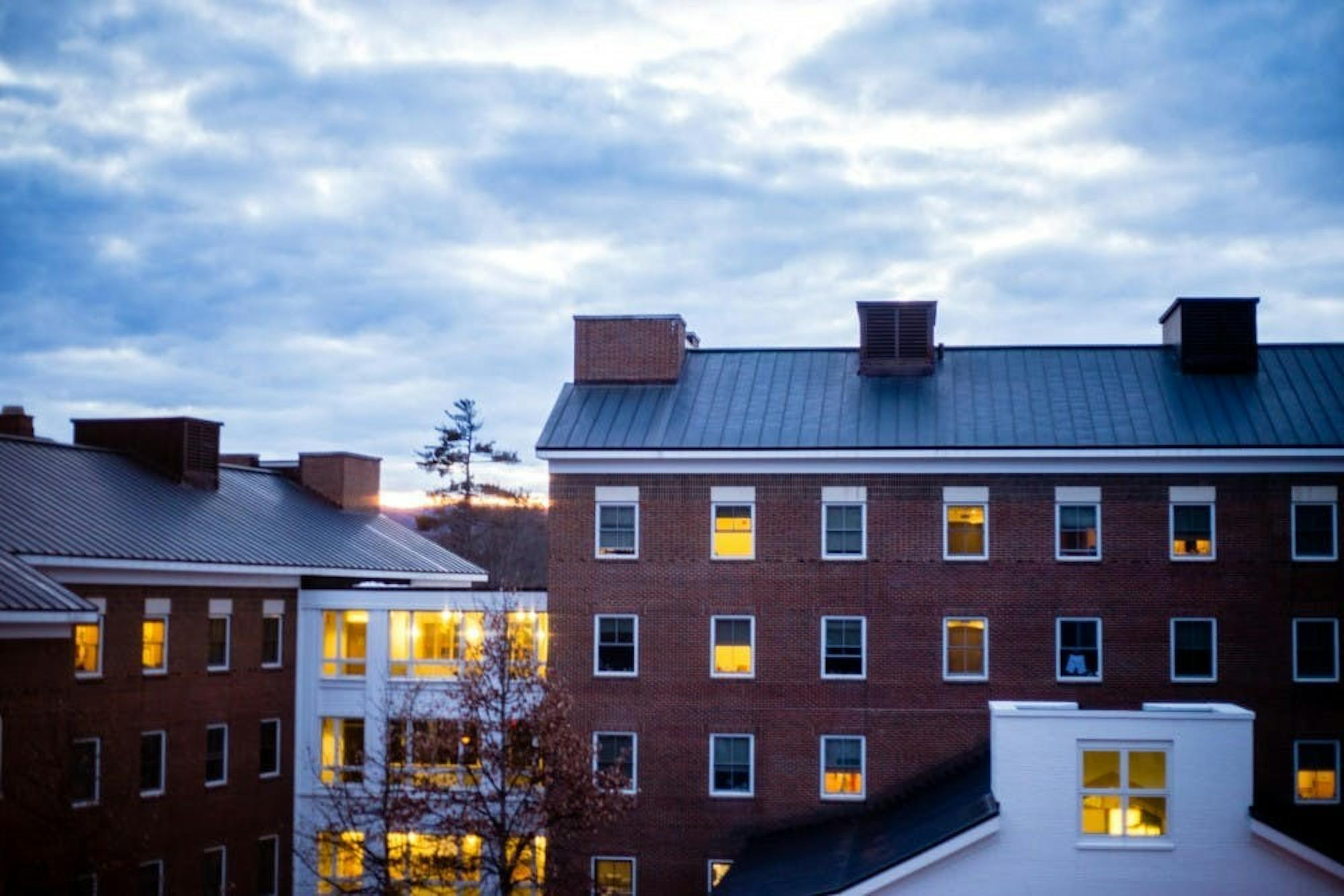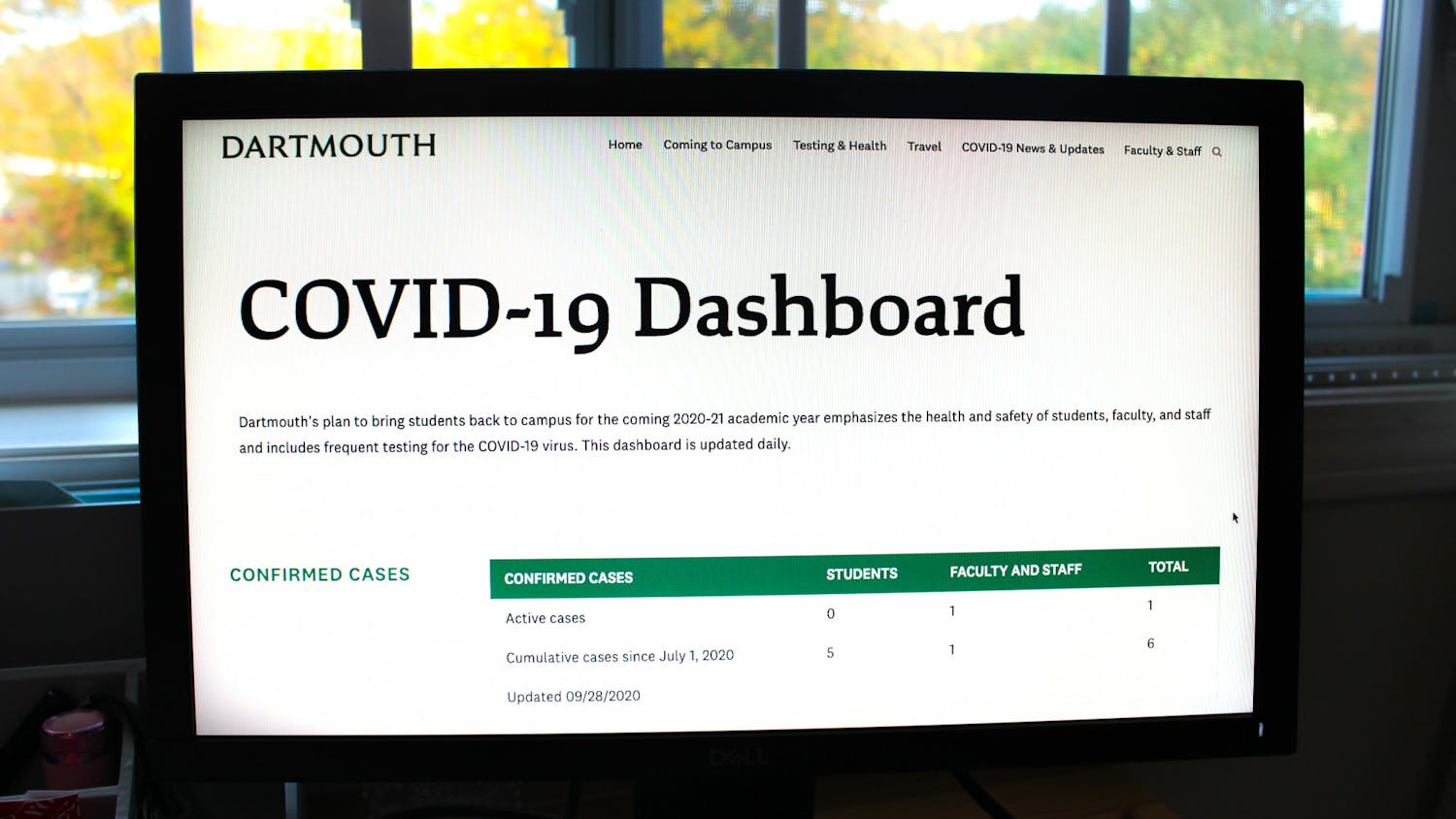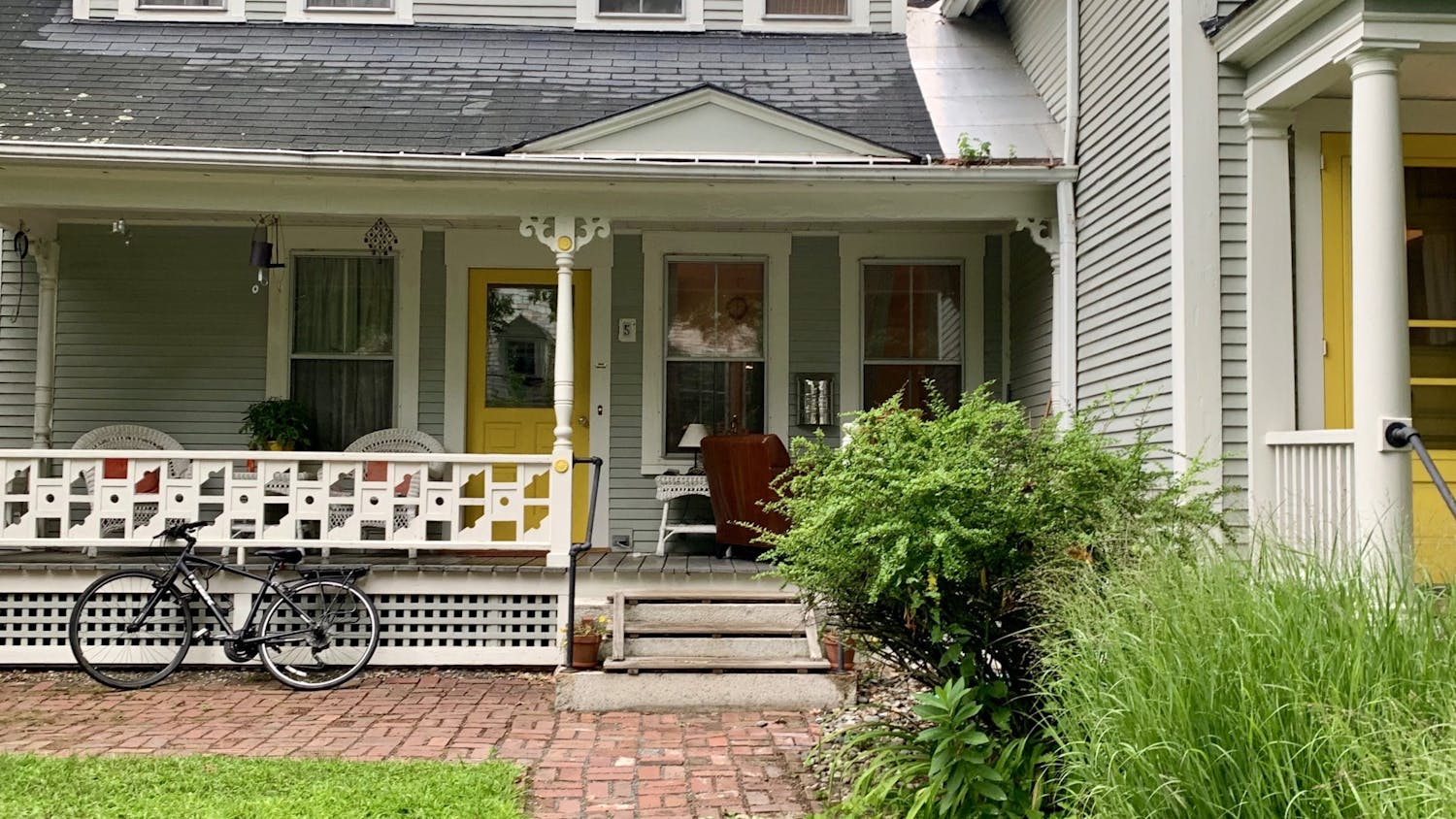As Dartmouth approaches week six of fall term, the College’s COVID-19 task force has begun planning for the winter. Though some students have been given the option to return to campus, many are questioning the value of an “on-campus” experience given remote classes and restrictions on socializing.
In an email sent to campus on Tuesday, Dean of the College Kathryn Lively wrote that after surveying students who had previously received approval for on-campus residency in winter term, the College would open a “quick waitlist” for those not yet approved to be on campus. The waitlist is open to ’23s, ’22s, ’21s and older classes — all ’24s will be required to enroll remotely this winter — and will prioritize students who have so far only been approved to be on campus for one term. The waitlist will close at 5 p.m. on Friday evening.
Lively wrote that the College will “pull randomly” from the waitlist if there are dorm rooms available after priority students have been identified. She said that the College elected to prioritize those who only received summer term on campus for the waitlist as a matter of “academic continuity,” as many of those students will have been away from campus for nearly a year.
Lively added in the email that as with fall term, all students will be required to participate in pre-arrival testing, on-arrival testing and a 14-day quarantine period, as well as staggered arrival periods.
The College has not expanded its on-campus capacity for winter term. Lively said in an interview that the College has chosen not to convert more quarantine housing to regular student housing as a matter of “public health.”
“All of our indoor facilities have to be de-densified, and this is especially important in winter when students are more likely to be staying indoors,” Lively said, adding that the extra quarantine space is “necessary” to handle potential outbreaks on campus.
Some students have expressed frustration with the College’s decision not to expand capacity for winter term. David Millman ’23 said that given the “extraordinary success” of fall term so far and the “low usage of quarantine space,” more space should be made available for student housing in winter to ensure that all students get at least two terms of on campus housing. Currently, only 1.4% of the College’s quarantine and isolation housing is occupied.
“There’s no reason why there should be some students left at home while rooms stay empty on campus,” Millman said.
Lively clarified that while prior communications from the College had indicated that students would have the “opportunity to be here on campus for two of the four possible enrolled terms,” this was not meant to be a “guarantee.” She added that given the lack of housing space under current guidelines for spring term, some students may ultimately not receive “two terms that work for them.”
However, some students feel misled by the College’s original statement regarding on-campus options. Millman contended that students “were led to believe that all students would receive two terms.”
Regarding other aspects of winter planning, Lively said that while many of the rules for fall and winter may seem “persnickety,” they were essential in making sure COVID-19 cases stayed low in the fall. She mentioned that the fall move-in process of assigned times and testing was “nearly flawless” and that the winter move-in process would look similar.
“We got students in and out very quickly,” Lively said. “We’re planning to stage the winter move-in and testing in Leverone to keep students out of the cold.”
Lively also mentioned that the Office of Student Life is working on assembling “a group of student affairs professionals” to develop indoor and outdoor winter programming.
However, some students remain hesitant to come to campus under the current restrictions.
Ian Gill ’23 said that he decided to opt in to the waitlist process because he wanted the option to come to campus if restrictions loosened. However, Gill added that it would be a “tough sell” if fall term’s rules and regulations still applied.
“If the College was able to provide more programming and interaction, even socially distanced, then I would feel more inclined to come to campus,” Gill said.
Others have already opted not to try and return to campus. Betty Faul ’23 said that she has decided not to opt into the waitlist process and instead plans to continue working in her hometown. She added that she was “really disappointed” with remote classes and the lack of a perceived “student life” under current COVID-19 policies, and said that even if she wanted to live on campus, it would not be possible for her to make a commitment in four days as requested by the College.
“Based on recent communications, it sounds like winter is my only other option to be on campus besides summer,” Faul said. “However, with the low quality of student life and tuition rates not changing, I’m not willing to pay for a subpar Dartmouth experience.”
Lively said that the College was unable to provide the number of initially approved students who declined to live on campus this winter.




